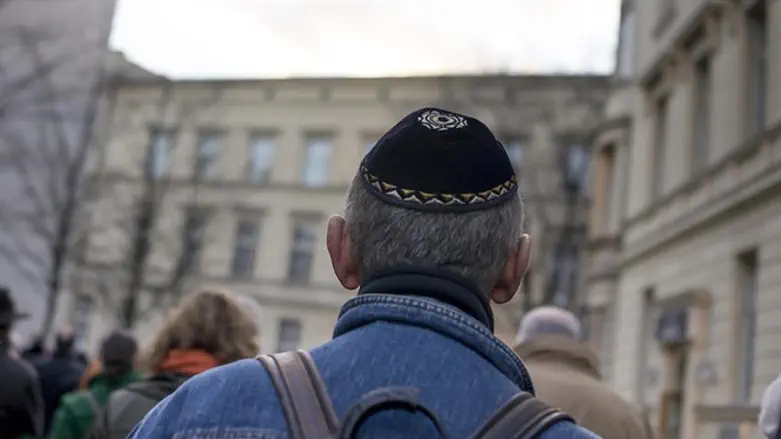
Jewish symbols are disappearing from the cities of Europe. The deputy mayor of Toulouse and the only Jew on the City Council, Aviv Zonabend, said that all European Jews should hide their kippah and that “the future of the Jewish people in Europe is hopeless.” After German Jewish leader Josef Schuster advised his co-religionists not to wear a kippah in Germany, Zonabend said: “Only in Germany? We have to remove it all over Europe.”
It's already happening. And the vanishing kippah is the most explosive and visible sign of the Islamization of Europe.
According to a survey by the European Union, 49 percent of Swedish Jews hide their kippah, along with 36 percent of those in Brussels and 40 percent of Jews in France. “We must do this to preserve the sanctity of life”, said Prosper Abenaim, the only rabbi of La Courneuve, a heavily Islamized neighborhood in Paris. He advises his faithful to do the same “or to emigrate to Israel”. Philippe Karsenty, a politician from Neuilly-sur-Seine, has warned relatives now about wearing the star of David: “Nothing good will come if you wear it.”
A few days ago an employee of the Anne Frank House in Amsterdam, Barry Vingerling, was prevented from wearing his kippah. “I work in the house of Anne Frank, who had to hide because of her identity and in that same house, I should hide my identity?” replied Vingerling. The TV channel Joodse Omroep has sent cameramen dressed as Orthodox Jews out to the Dutch streets. The TV service shows young Muslims praising Hitler and trying to attack Jews.
Israeli diplomats have addressed this appeal in Denmark: “Do not wear the symbols of faith”. The Caroline Jewish school in Copenhagen did the same as the communities of Finland and Norway. They have adopted “invisibility” to live more safely.
“Solidarity with Israel and the fight against anti-Semitism is only on paper,” wrote Mathias Döpfner this week in Die Welt. He is the CEO of giant publisher Axel Springer. “In memory we are giants, in action we are dwarfs. A lobby calls for a boycott of Israel and no one is scandalized in the country that 75 years ago wrote on its walls 'do not buy from the Jews.'”
Then Döpfner wrote an unprecedented premonition. In the past he would have sworn that, in the event that Israel was under attack, Germany would play its part in defending the Jewish people. “Today I would say: 'Do not rely on us'”.
A few hours later, in Neukölln, the district of young people and immigrants in Berlin, some demonstrators displayed an Israeli flag in the square for the day of solidarity with the Jewish community. They called it “a sign of peace and tolerance”. A minute later, a group of young people snatched away the flag of Israel. Others shouted “terrorists” at them. A woman praised the attack a few days before that against an Israeli boy who had a kippah: “What happened to Prenzlauer Berg is fantastic.”
A week ago, the same scene in Neukölln's square was filmed in the Gaza Strip on the border with Israel, where Israeli flags were burned by the Palestinian Arabs. And where, as in many parts of Europe, it would be suicidal to go around with a kippah.